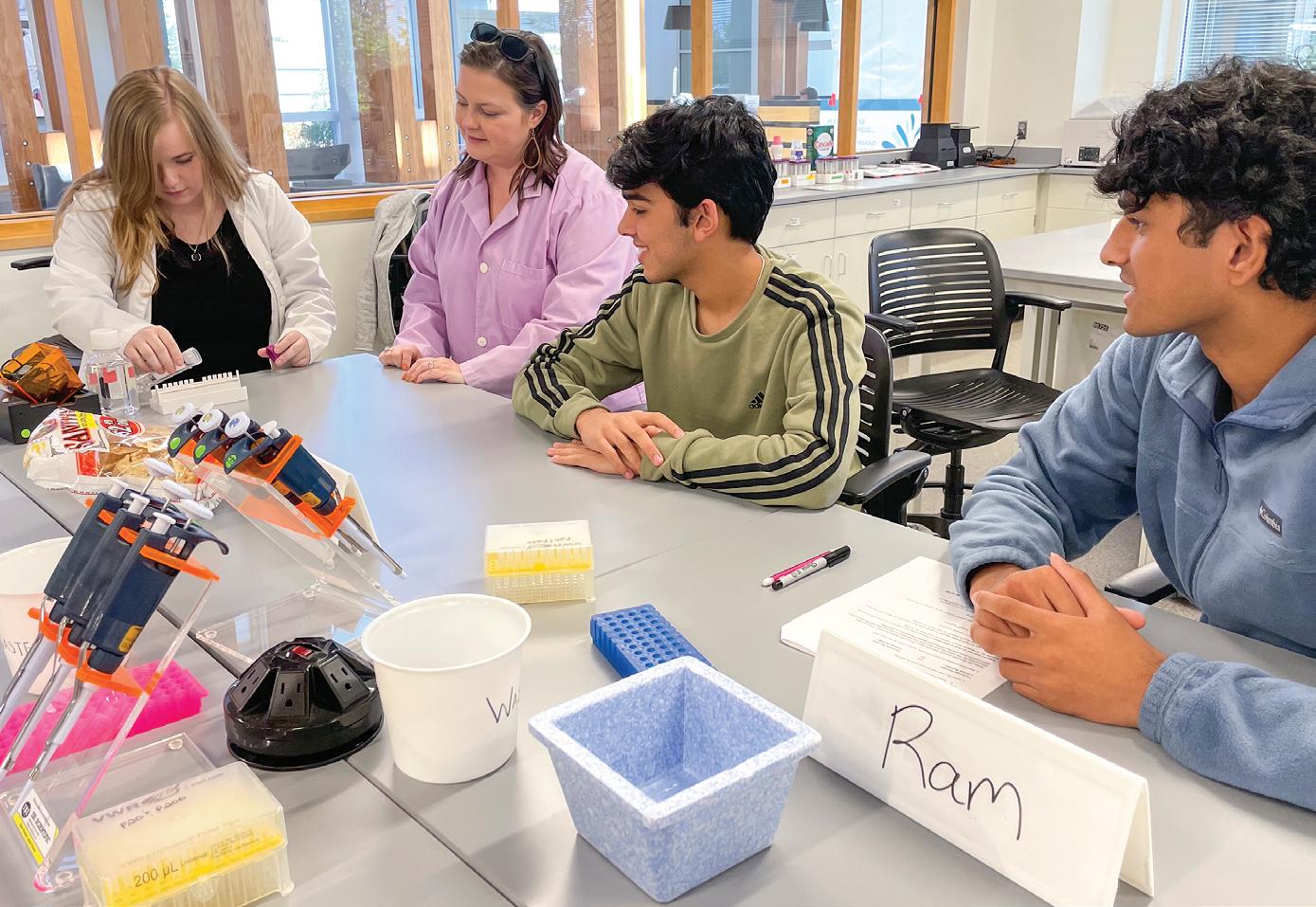
5 minute read
GROWTH INDUSTRY
HudsonAlpha Wiregrass arrives in Dothan
For over 100 years, the peanut has been the backbone of farming in the Wiregrass. In the early 1900s, the unassuming little nut saved farmers whose cotton crops were decimated by boll weevil infestation.
Now, with the arrival of HudsonAlpha in Dothan, the Wiregrass can once again be part of unlocking the peanut’s full potential. The nonprofit research institute’s second campus aims to use research into the DNA of the peanut and other area crops to help farmers get the most out of their harvests, support local education and promote economic growth.
“We’re at a point in the field of genomics where you no longer have to be at a big academic center or working on the coasts,” says Neil Lamb, president of the HudsonAlpha Institute for Biotechnology. “The tools and technology have become economical and robust enough that it’s the right time to bring genetics to a place like the Wiregrass.”
The new HudsonAlpha Wiregrass, which will call the recently announced Wiregrass Innovation Center in downtown Dothan home, is the institute’s first expansion outside of Huntsville. Over the last 15 years, that campus has attracted dozens of biotech companies from around the world and now employs more than 1,000 people.
While the Dothan campus will develop along its own trajectory, Lamb hopes it can have a similar impact with a focus on agriculture. With service from Wiregrass Electric and enthusiastic support from the Dothan Area Chamber of Commerce, the Wiregrass provides exactly the partner Hudson Alpha was looking for.
“In one of my first conversations with Mayor Mark Saliba he said he believed that the city of Dothan was the right people, the right place and the right time for this kind of collaboration,” Lamb says. “And he was right in every way.”
Unlocking the genome
On its own, the research happening at HudsonAlpha can be an advantage for WEC members and local farmers. Lamb says genomics research has the potential to make harvests profitable well into the future, even for farmers who are comfortable with the crops they have grown for generations.
“If you think about farmers that have always grown the same crops, it becomes increasingly challenging to grow some of them as temperatures get higher and water becomes more scarce,” he says. “But the power of plants is that they have learned to grow in the most inhospitable places around the world. And the secrets to that sit within their genetic recipes.”
The goal is to find those secrets in the DNA of crops like the peanut. Once scientists know which genetic piece of information allows it to grow in extreme temperatures or in unusual soil conditions, they can breed new plant varieties that will thrive in otherwise poor circumstances.
“It isn’t genetically modified. It isn’t genetic engineering,” Lamb says. “It’s the exact same tools of breeding farms have done for thousands of years, but you’re using the power of genetics as a shortcut to quickly determine which varieties of this seedling will give me the plant that I want.”
In the process, HudsonAlpha hopes to attract new biotech companies to the area just as it has in Huntsville. But it also looks forward to cultivating new ideas and businesses right here in the Wiregrass.
“We want to find the ideas people in this region have, the challenges they see in need of a solution, and use our expertise from the last 15 years in Huntsville to help them refine that,” Lamb says. “Over time, the goal is to build an entrepreneurship economy in the Wiregrass.”
One way to do that is with programs like the AgTech Accelerator, which HudsonAlpha recently conducted at its Huntsville campus. The program provides a fast-paced course designed to help small companies reach the next level, whether it’s polishing pitches, establishing that first set of customers or building for long-term sustainability.
“We describe it as steel on steel because every single day they’re working intently on how to get to the next place,” Lamb says. “We hope that some of those companies will choose to locate on our campus, build relationships with our existing companies or collaborate with our scientific researchers.”
Right place, right time
What excites Lamb most are the possibilities for HudsonAlpha to support education throughout the Wiregrass. Students across WEC’s service area and the entire region will be able to study the same plants researchers are working on while learning high-demand skills in science, technology, engineering and math that can help them prepare for a variety of careers.
The institute also aims to provide support for teachers through workshops that will offer the latest insights and resources for educators in biology, health science, anatomy and physiology, computer science and more. Lamb also hopes to put on summer camps and after-school programs similar to those HudsonAlpha hosts in Huntsville.
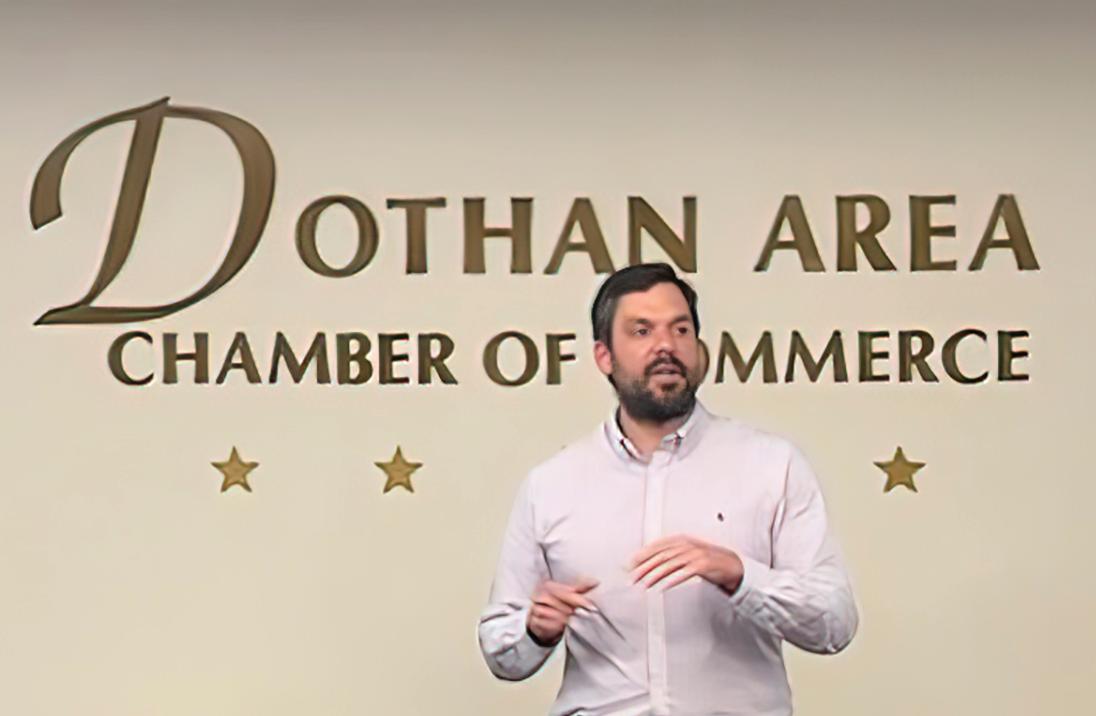
“We were able to establish those programs for students who really think this is the field they’d like to be in. Their eyes light up when they hear about this stuff,” he says. “We would love to be able to run camps in the Wiregrass area and field trips during the school year to let students and teachers dig deeper into the subject.”
While HudsonAlpha teams have already been on the ground, Lamb anticipates seeing real progress this spring. That’s when the institute expects to begin providing plants to local classrooms for study, conversations with prospective companies and its first round of educator workshops.

“One of our key values is collaboration, and the people of the Wiregrass all row in the same direction,” Lamb says. “It’s rare around the country today to find groups that work together and with their foundations, industry leaders and school systems. So we look forward to working with a group of people that come to the table with an abundance mindset and wanting to know how we can work together.”
Between that mindset and the deep farming roots throughout the region, Lamb has no doubt that HudsonAlpha Wiregrass will be a success for everyone involved.
“In the Wiregrass, your entire backyard is built around agriculture and the relationship with the ecosystem,” he says. “So as we look at how we use the power of genomes to create more robust crops that meet the needs of local farmers, Dothan is the right place for that.”


My husband loved to build things out of wood. He built houses, churches and trains. I’m so proud. SUBMITTED by Nyoka Chandler, Guntersville.
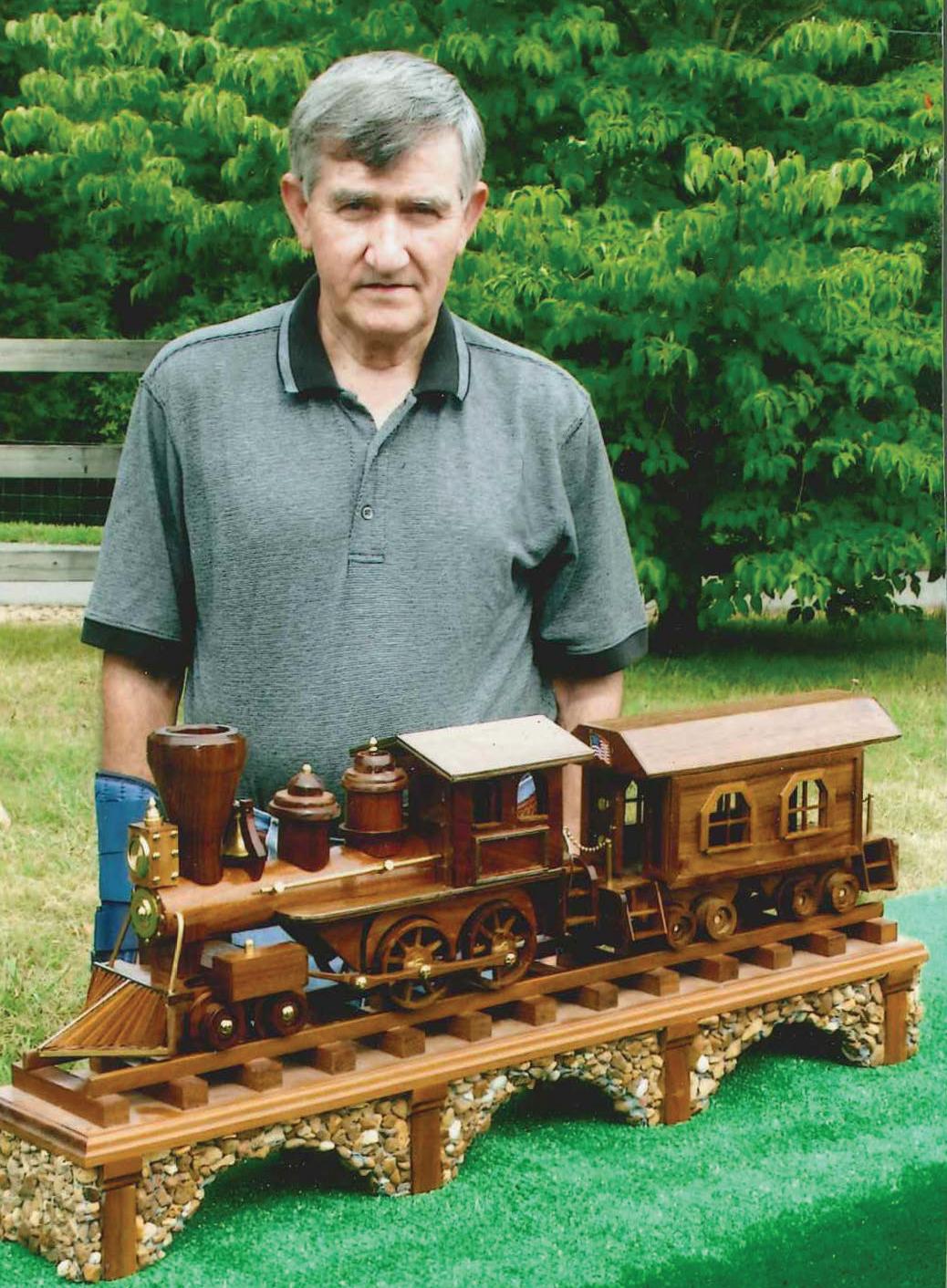
I made this for my grandson. My first time building a rocking horse. SUBMITTED by Ray Bell, Newville.
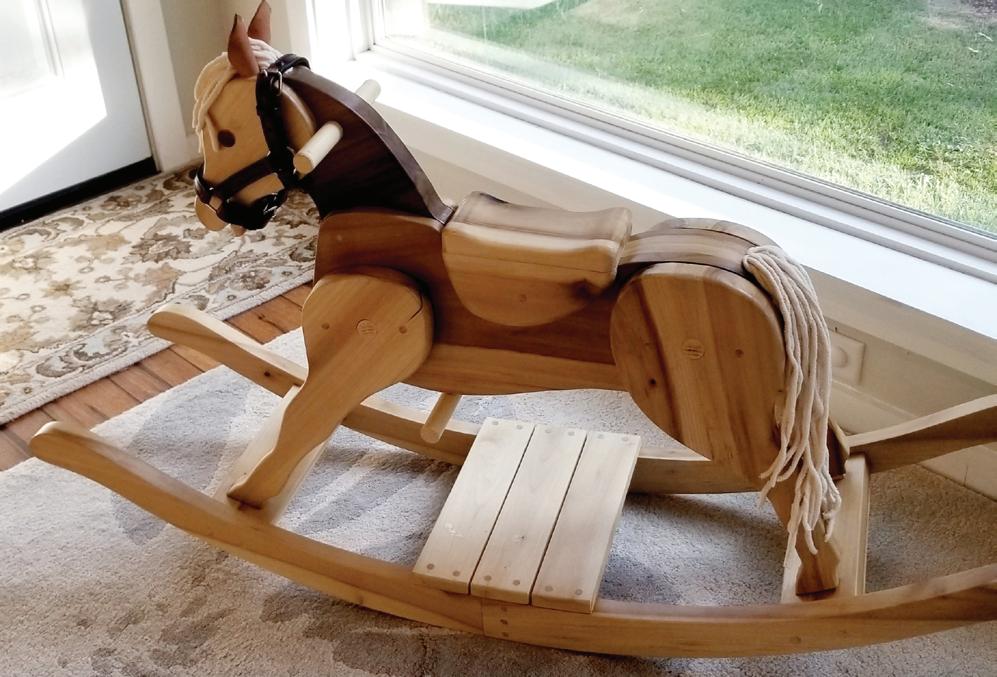
I’ve been wood carving for about 30 years. SUBMITTED by Jerry Cochran, Summerdale.

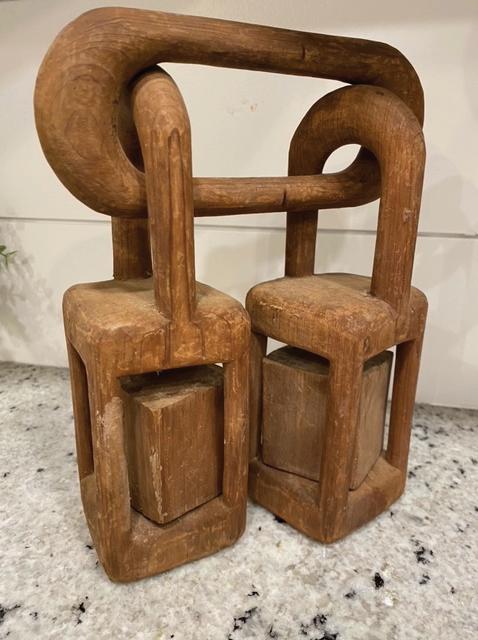
Stephan H. Scott made this boat from a pine tree that fell on our property after a storm and named the boat after his grandmother. SUBMITTED by Marilyn Scott, Elberta.

One of my ancestors whittled this. All of it is one piece - no pieces of it are separate. SUBMITTED by Rhonda Mosley, Andalusia.
A friend of mine did this woodburning of my dog, Gypsy, from the included picture. SUBMITTED by Susie Burgess, Hartselle.

My Daddy made heart shaped jewelry boxes out of cedar for every female in his family. SUBMITTED by Joyce Pickett, Fitzpatrick.
| Deadline: February 28

Co-ops respond to devastating severe weather
Numerous strong to severe thunderstorms cut through central Alabama on Jan. 12, and several of those storms spawned significant tornadoes, according to the National Weather Service. An EF3 tornado that tracked from Autauga County into western Chambers County had a longtrack path of over 76 miles and was at least 1,500 yards wide; this tornado caused seven fatalities and 16 injuries.
This storm left more than 9,000 Central Alabama EC members without power, and the co-op needed to replace more than 300 poles. Several sister co-ops responded to help Central Alabama with the restoration of power: Dixie EC, Marshall-DeKalb EC, Tallapoosa River EC, Baldwin EMC, Clarke-Washington EMC, Cullman EC, Coosa Valley EC, Black Warrior EMC and Wiregrass EC sent a total of 85 men as well as trucks and materials to the affected areas in Central Alabama’s territory. They were in place by the morning of Jan. 13, and all were released by the evening of Jan. 15.
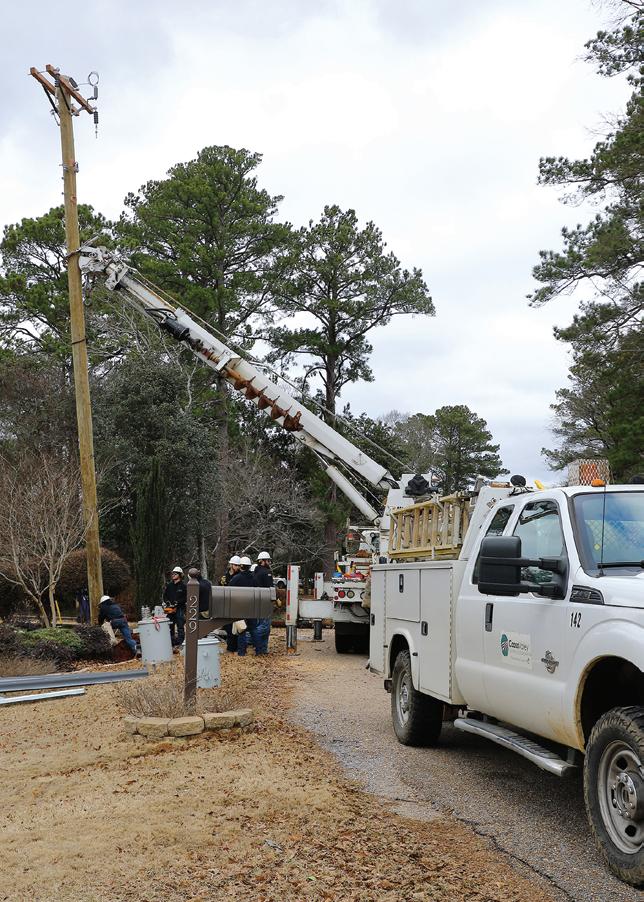
But several co-ops had their own damage to contend with. Black Warrior EMC, Pioneer EC, Southern Pine EC, Clarke-Washington EMC, Joe Wheeler EMC, South Alabama EC, Pea River EC and others saw large-scale outages from the band of storms that tore through Alabama.
Alabama’s co-ops always stand ready to help sister co-ops both in-state and across the Southeast after a devastating weather event.










